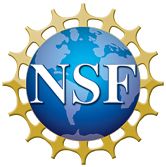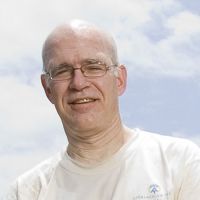Richter, 2018
Strengthening the biogeosciences in environmental research networks (Invited)
Richter, Daniel deB. (2018)
American Geophysical Union 2018 Fall Meeting, Washington, DC, 10-14 Dec 2018
-
Calhoun, INVESTIGATOR
Abstract
A remarkable number and wide variety of place-based environmental research networks operate around the world today. These are diverse in funding, infrastructure, motivating questions, scientific strengths, and the sciences that birthed and maintained the networks. Some networks have individual sites that were selected because they had produced invaluable long-term data, while other networks have new sites selected to span ecological gradients. However, all long-term environmental networks share two challenges. Networks must keep pace with scientific advances and interact with both the scientific community and society at large. If networks fall short of successfully addressing these challenges, they risk becoming irrelevant. The objective of this paper is to assert that the biogeosciences offer environmental research networks a number of opportunities to expand scientific impact and public engagement. We explore some of these opportunities with four networks: the International Long Term Ecological Research programs (ILTERs), the Critical Zone Observatories (CZOs), the Earth and Ecological Observatory networks (EONs), and the FLUXNET program of eddy flux sites. While these networks were founded and grown by interdisciplinary scientists, the preponderance of expertise and funding have gravitated activities of ILTERs and EONs toward ecology and biology, CZOs toward the Earth sciences and geology, and FLUXNET toward ecophysiology and micrometeorology. Our point is not to homogenize networks, nor to diminish disciplinary science. Rather, we argue that by more fully incorporating the integration of biology and geology in long-term environmental research networks, scientists can better leverage network assets, keep pace with the ever-changing science of the environment, and engage with larger scientific and public audiences.
Citation
Richter, Daniel deB. (2018): Strengthening the biogeosciences in environmental research networks (Invited). American Geophysical Union 2018 Fall Meeting, Washington, DC, 10-14 Dec 2018.
 This Paper/Book acknowledges NSF CZO grant support.
This Paper/Book acknowledges NSF CZO grant support.
Explore Further

